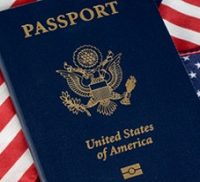
In a 22- page response filed in the US Federal District Cout of Utah, the American Samoa Government and Congresswoman Aumua Amata are reiterating their position on the question of whether the court shold extend US citizenship by judicial fiat to residents of an unincorporated territory.
According to the response, the answer to that question, according to the precedent of the US Supreme Court and everuy other federal court to hear the question and historical practice for more than a century, “is plainly no.”
The filing by ASG and Aumua is in the case of John Fitisemanu and other plaintiffs against the United States Government over the granting of US citizenship for people born in American Samoa.
The Congresswoman and ASG are proposed intervenors in the case.
According to the filing whenever the United States has extended citizenship to the inhabitants of an unincorporated territory, it has done so through congressional legislation, not through judicial intervention.
The filing says the plaintiffs, three individual US nationals and a non profit organization urge the court to extend birthright citizenship to American Samoans, but leaders of American Samoa, represented here by the American Samoa Government and the Congresswoman from American Samoa disavow the plaintiffs’ claims and consistently have opposed other similar efforts urging the courts to unilaterally impose US citizenship on all American Samoans.
“This is because the people of American Samoa zealously guard their rights of self determination and are fiercely protective of faa Samoa, traditional Samoan ways that might be threatened by a fundamental change in the status of the American Samoan people.”
It says plaintiffs would deprive the people of American Samoa of their rights to determine their own status, even though those rights were an important condition of American Samoa’s association with the United States.
According to the filing by ASG and Aumua, the arguments advanced by plaintiffs amount to a plea that the court extend US citizenship to the American Samoan people, “whether they like it or not.”
“These arguments are untenable, and the court should dismiss the complaint for at least two additional reasons not fully addressed in the current defendants’ briefs,” argue the proposed intervenors.
“First, extending birthright citizenship to people who do not want it violates every legal principal of self determination, sovereignty and autonomy.
“And second whether birthright citizenship should extend to the people of American Samoa is a question for the people of American Samoa and its elected representatives, and not for this court to decide.”
The filing goes further that in every other case in which people born in overseas territories were granted birthright citizenship, Congress, not the courts has made that decision in conjunction with the elected representatives of those territories.
“There is simply no legal or practical basis for upsetting more than a century of precedent establishing that the citizenship clause doesn’t not automatically apply in every unincorporated territory of the United States.”
The intervenors ask the court to dismiss the plaintiffs’ complaint in its entirety for failure to state a claim upon which relief can be granted and deny plaintiffs motion for summary judgment as moot.
In the alternative, the court should deny plaintiffs’ motion for summary judgment and grant the defendants and proposed intervenors cross motions for summary judgement on all claims.
The response by ASG and the congresswoman was filed by the lawfirms of Kirkland & Ellis LLP of Washington DC and Manning, Curtis, Bradshow and Brednar of Salt Lake City, Utah.
Electronic court records show a hearing was held last week on oral arguments on ASG and Aumua’s motion to intervene and the court has taken submissions under consideration before issuing a decision.




